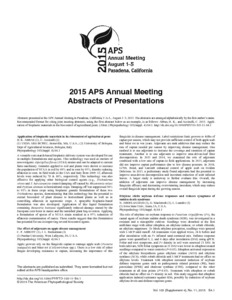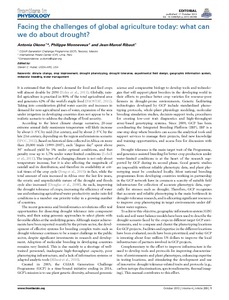Location
Lima, Peru
The International Potato Center, known by its Spanish acronym CIP, was founded in 1971 as a root and tuber research-for-development institution delivering sustainable solutions to the pressing world problems of hunger, poverty, and the degradation of natural resources. CIP is truly a global center, with headquarters in Lima, Peru and offices in 20 developing countries across Asia, Africa, and Latin America. Working closely with our partners, CIP seeks to achieve food security, increased well-being, and gender equity for poor people in the developing world. CIP furthers its mission through rigorous research, innovation in science and technology, and capacity strengthening regarding root and tuber farming and food systems.
CIP is part of the CGIAR Consortium, a global partnership that unites organizations engaged in research for a food secure future. CGIAR research is dedicated to reducing rural poverty, increasing food security, improving human health and nutrition, and ensuring more sustainable management of natural resources. Donors include individual countries, major foundations, and international entities.
Members:
Resources
Displaying 6 - 10 of 20Invasion and saturation risk of pathogens and pests based on global cropland connectivity: the case of banana, cassava, potato, sweet potato, and yam
Phenotypic stability and genome wide association study of late blight resistance in potato genotypes adapted to the tropical highlands.
Managing Potato Biodiversity to Cope with Frost Risk in the High Andes: A Modeling Perspective
Austral summer frosts in the Andean highlands are ubiquitous throughout the crop cycle, causing yield losses. In spite of the existing warming trend, climate change models forecast high variability, including freezing temperatures. As the potato center of origin, the region has a rich biodiversity which includes a set of frost resistant genotypes. Four contrasting potato genotypes –representing genetic variability- were considered in the present study: two species of frost resistant native potatoes (the bitter Solanum juzepczukii, var. Luki, and the non-bitter Solanum ajanhuiri, var.




